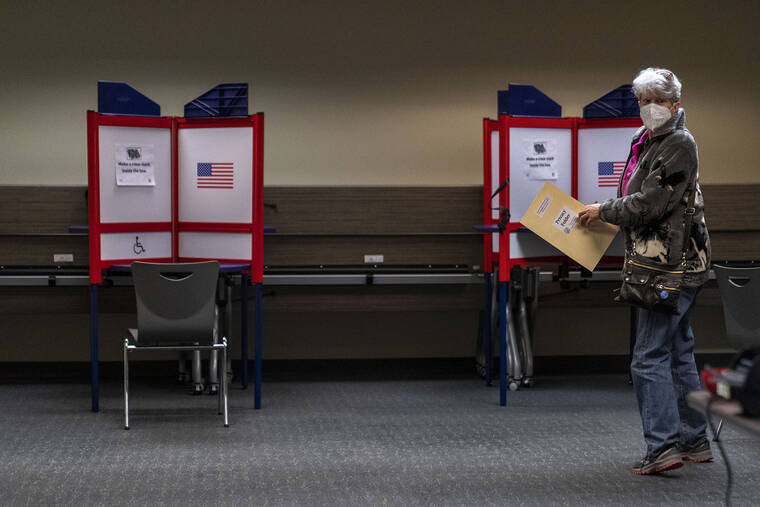US warns about foreign efforts to sway American voters
WASHINGTON — Federal officials are warning ahead of the November midterms that Russia is working to amplify doubts about the integrity of U.S. elections while China is interested in undermining American politicians it sees as threats to Beijing’s interests.
An unclassified intelligence advisory, newly obtained by The Associated Press, says China is probably seeking to influence select races to “hinder candidates perceived to be particularly adversarial to Beijing.” In the advisory, sent to state and local officials in mid-September, intelligence officials said they believe Beijing sees a lower risk in meddling in the midterms versus a presidential election.
ADVERTISING
While officials said they’ve not identified any credible threats to election infrastructure in the U.S., the latest intelligence warning comes amid the peak of a midterm campaign in which a rising number of candidates and voters openly express a lack of confidence in the nation’s democratic processes.
Foreign countries have long sought to sway public opinion in America, perhaps most notably in a covert Russian campaign that used social media to sow discord on hot-button social issues ahead of the 2016 presidential election. The U.S. government has been on high alert since, warning about efforts by Russia, China and Iran to meddle in American politics and shape how voters think.
The U.S. faces foreign influence campaigns while still dealing with growing threats to election workers domestically and the systematic spread of falsehoods and disinformation about voter fraud. Former President Donald Trump and many of his supporters — including candidates running to oversee elections in several states — continue to lie about the 2020 presidential election even as no evidence has emerged of significant voter fraud.
“The current environment is pretty complex, arguably much more complex than it was in 2020,” Jen Easterly, director of the Department of Homeland Security’s cybersecurity arm, told reporters Monday.
Russia is amplifying divisive topics already circulating on the Internet — including doubts about the integrity of American elections — but not creating its own content, said a senior FBI official who briefed reporters Monday on the condition of anonymity under terms set by the bureau. Overall, the official said, China’s efforts are focused more on shaping policy perspectives, including at the state and local level, rather than on electoral outcomes.


